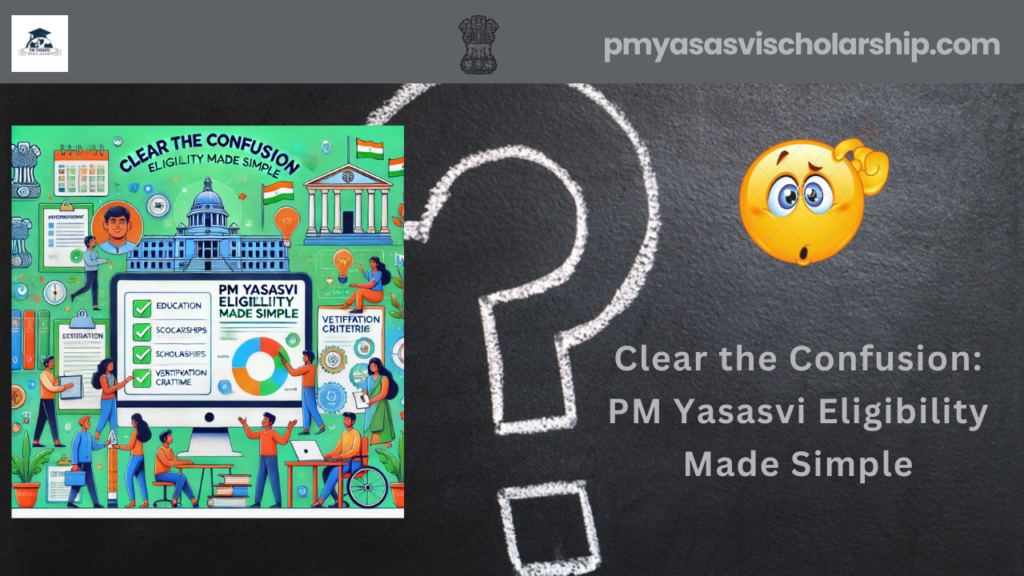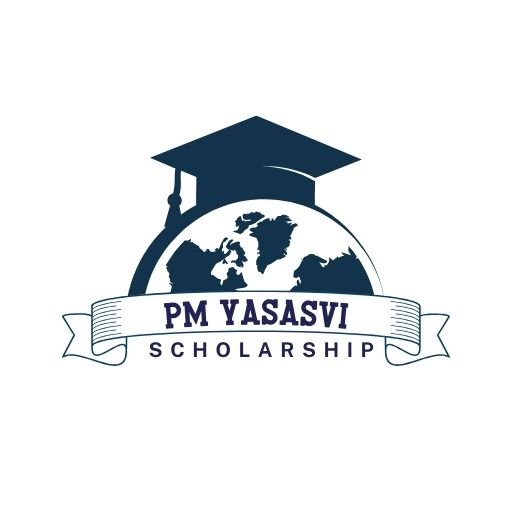Clear the Confusion: PM Yasasvi Eligibility Made Simple
Introduction

Navigating the PM Yasasvi Scholarship eligibility criteria can feel like trying to crack a tricky puzzle! With so many applicants asking, “Why am I not eligible for the PM Yasasvi Scholarship?” or “What are the eligibility criteria for PM Yasasvi Scholarship?” it’s clear that confusion abounds. Don’t worry; I’ve got you covered! In this guide, we’ll break it all down, leaving no stone unturned so you can confidently apply for this golden opportunity. Let’s dive right in!
Common Areas of Confusion in PM Yasasvi Eligibility
Age Requirements
Let’s start with the most common stumbling block: the PM Yasasvi age limit. Did you know there’s a strict age criterion? Applicants need to fall within the age bracket specified in the official guidelines, but the exact cut-off date often throws people off. For example, students might assume they’re eligible based on their birth year but miss out because their birth date doesn’t align with the required range. Yikes!
To clear things up, always check the official notification for that specific year. It’s updated annually, and the dates can shift slightly. Plus, if you’re even a day outside the range, sorry, no exceptions here!So,Take a minute to verify your eligibility before you dive into the application process.
Educational Qualifications
This one is a doozy! Many students mistakenly believe they can apply while in lower grades or after completing their schooling. Spoiler alert: you must currently be in the eligible academic grade to qualify. Typically, the scholarship targets students in classes 9th, 10th, or 11th, but double-check the requirements for your academic year to be sure.
Another point of confusion? Private school students often wonder, “Can I apply?” Yes, you can! But only if your school is recognized under the scheme. When in doubt, consult your school administration—they’re usually in the know.
Income Limit
Let’s talk money. The PM Yasasvi scholarship prioritizes students from economically weaker sections, meaning there’s a strict income ceiling. But here’s where it gets tricky: some families submit incorrect income certificates or fail to understand what qualifies as annual family income.
If you’re unsure, work with your local authority to obtain the correct documentation. Trust me, an accurate income certificate can save you from the heartbreak of a rejected application.
Caste and Community Criteria
Another head-scratcher? Caste and community eligibility. The scholarship is open to OBC, EBC, and DNT categories. However, confusion arises because the eligible categories can vary slightly by state. Additionally, not having the proper caste certificate is a common roadblock.
Here’s a tip: if you’re unsure about your eligibility, visit your local Common Service Center (CSC). They can guide you through the verification process and ensure your documentation matches the requirements.
Domicile and Residential Criteria
Are you eligible in your current state of residence? Or does your home state matter? Ah, the ever-confusing domicile question! To qualify, you must provide a domicile certificate proving you’re a resident of a specific state. This is especially critical for students who’ve recently moved.
Pro tip: Start the domicile application early, as it can take weeks to process. If your state has specific requirements, it’s better to address them sooner rather than later.
Key Mistakes Applicants Make When Determining Eligibility
Misreading Official Guidelines
Raise your hand if you’ve skimmed through official notifications instead of reading them line by line. Guilty as charged? Misinterpreting the criteria is one of the top reasons applications get rejected. Take your time to read the fine print—it’s worth it!
For instance, some students overlook the specifics around grade levels or income criteria. Others assume last year’s rules still apply. Big mistake! Always consult the updated guidelines for the current year.
Missing or Incorrect Documentation
Nothing derails an application faster than submitting the wrong documents. Invalid income certificates, incomplete caste verification, or missing proof of residence are all red flags. Think of your documentation as your golden ticket—get it right, and you’re one step closer to success!
How to Clarify Your Eligibility for PM Yasasvi
Reading Official Notifications Carefully
The best way to resolve confusion is by thoroughly reading the official guidelines. Sounds simple, right? Yet, so many applicants skip this step. Bookmark the official PM Yasasvi website and refer to it frequently. Make notes of specific requirements to avoid misunderstandings.
Consulting the PM Yasasvi Helpdesk or CSC
If reading guidelines feels overwhelming, don’t fret! The PM Yasasvi Helpdesk is there to help. You can also visit your nearest Common Service Center (CSC) for personalized assistance. They’ll guide you through the process and answer any lingering questions.
Frequently Asked Questions (FAQs) About PM Yasasvi Eligibility
Can private school students apply?
Yes, as long as your school is recognized under the scheme.
What if my income exceeds the limit slightly?
Unfortunately, exceeding the income ceiling disqualifies you. So,Accuracy matters!
Is domicile proof mandatory?
Absolutely, Without a domicile certificate, your application won’t be processed.
Tips to Avoid Eligibility Confusion
Stay Updated on Official Guidelines
Bookmark the official website and sign up for updates. This ensures you’re always in the loop.
Verify Documents Early
Don’t wait until the last minute to gather your documents. Cross-check everything to ensure it meets the requirements.
Seek Guidance When in Doubt
When in doubt, reach out! The PM Yasasvi helpline and CSCs are invaluable resources.
Conclusion
Confusion about PM Yasasvi eligibility is common, but it doesn’t have to be stressful. By understanding the requirements, avoiding common mistakes, and leveraging available resources, you can confidently apply for this incredible opportunity. So, why wait? Start your eligibility checks today and take the first step toward securing your future. Need more guidance? Reach out to the helpdesk or your local CSC—you’ve got this!
